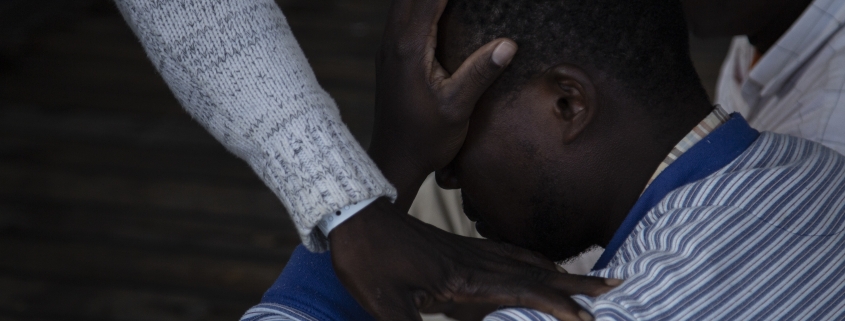Libya Summit: Sea-Eye Calls For Human Rights-Based And Humanitarian, European Politics
The Security Of The People In Libya Must Have Top Priority
A few days after Sea-Eye founder Michael Buschheuer was awarded the Georg Elser Prize for special civil courage and civil disorder in Munich for the founding the civil sea rescue organization Sea-Eye, the German government received dictators and warlords in the German capital the following Sunday.
On the occasion of the so-called Libya Summit in Berlin, Sea-Eye is addressing important demands to the Federal Government and the Chancellor.
Europe must find a way to a human rights-based and humanitarian common foreign policy. The federal government must use its influence to promote peace in Libya and to create safe shelters for refugees in Libya who should ideally be under the control of the United Nations instead of Libyan militia officers, traffickers or warlords. Cooperating with an opaque, violent network of Libyan coast guards must be replaced by a European naval operation designed to save as many people as possible from drowning. Civil sea rescue organizations must be supported and promoted in their efforts to save lives. The maritime rescue control centers in Rome and Valletta must return to cooperating with the aid organizations. Working together saved tens of thousands of lives between 2016 and 2018. Families with children and unaccompanied minors must be evacuated from Libya immediately for humanitarian reasons. The best way to combat human trafficking and smugglers is by using humanitarian corridors and safe escape routes.
“How can you, on the one hand, seriously negotiate with warlords about a ceasefire in Libya and at the same time have come to the view that it is okay to systematically prevent people from fleeing and force them back to this country of civil war?” asks Gorden Isler, chairman of Sea-Eye.
Together with other EU member states, the Federal Government supports and finances the so-called Libyan coast guard to intercept people fleeing over the Mediterranean sea and bring them back to the civil war country. Experts on international law speak of an undermining of basic human rights.
“It is precisely through this cycle of uncontrollable camps, intercepting people in the Mediterranean and returning them to these camps that an unbearable mechanism of systematic human rights violations emerged, the political architects of which are located in the governments of Europe,” said Julian Pahlke, spokesman for Sea-Eye.
The rescue ship ALAN KURDI itself was attacked and threatened by an armed Libyan militia during an emergency rescue operation at sea in October 2019. For the so-called Zuwara Maritime Police, this incident had no consequences. A rescued woman told the human rights observer on board ALAN KURDI in November that she had to watch a Somali woman’s newborn baby being fed to a wild dog in a Libyan camp.
“The federal government cannot call the reduced number of asylum applications in Germany and Europe a success, while the people in Libya pay the highest possible price for it. The crimes against the people of Libya go beyond the meaning of the word violence. We expect that the safety of fleeing people has top priority in the talks in Berlin. The federal government is responsible,” continues Isler.

 © sea-eye.org
© sea-eye.org © Nick Jaussi / sea-eye.org
© Nick Jaussi / sea-eye.org © Marco Riedl / sea-eye.org
© Marco Riedl / sea-eye.org